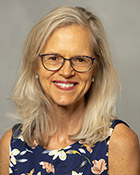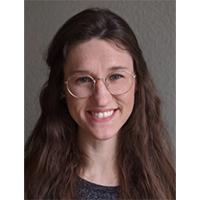With a successful inaugural year of its Affiliate Faculty program, the Center for Interprofessional Health (CIH) now offers a Senior Affiliate Faculty Program in which participants can deepen their engagement in interprofessional education, practice, and research.
"Feedback from our inaugural cohort of Affiliate Faculty members indicated a strong interest in ongoing engagement, so we're pleased to now offer the CIH Senior Affiliate Faculty Role," said Sasha Zagoloff, PhD, LP, the faculty lead for the CIH Affiliate Faculty program. “This model of offering ongoing engagement through teaching and mentorship opportunities and fostering new connections will not only create a strong foundation for the program itself, but also create an ever-growing network of interprofessional champions and colleagues to support and enhance future collaboration and innovation.”
Six members from the inaugural cohort of the Affiliate Faculty program have continued as Senior Affiliate Faculty members for the 2023-24 academic year. They will participate in new or continued contributions to interprofessional teaching, innovations, practice, and research initiatives; mentor faculty and students in the interprofessional space; and lead opportunities aligned with faculty goals.

“Participating in the Affiliate Faculty Program afforded me unique opportunities to meet and network with and learn from and about health care professionals across many disciplines,” said Laura Kirk, PhD, RN, a clinical associate professor in the School of Nursing. “I’m looking forward to continuing these interactions as a Senior Affiliate Faculty member to enable greater understanding of the different disciplinary roles and perspectives and how we work together within departments, schools, institutions and across the university.”
Brooke Palmer, PhD, LP, an assistant professor in the Department of Medicine, says she chose to continue as a Senior Affiliate Faculty program member because, “CIH offers a supportive and enthusiastic environment to explore interprofessional connections and competencies. That’s an area of my professional identity that I want to flesh out and it has been great to have access to such great resources and support.”
Like Kirk, Palmer enjoys the experience of joining together across disciplines and professions to learn from, with and about each other.

“I've really enjoyed meeting health professional colleagues and students I wouldn't have otherwise known; I love expanding my network of like-minded interprofessional colleagues,” said Palmer. “I've also enjoyed seeing how much work the CIH puts into its programming, there's always another layer of awesomeness the more you dig.”
Kirk says her experience in the program serves as a reminder of how important it is to know the skills of "your team."
“Even seasoned veterans gain new insights and perspectives; lifelong learning is real,” said Kirk. “Being able to authentically and credibly attest to the significance of interprofessional collaboration in health care, and role model this to students, enhances my teaching effectiveness.”
Palmer says she will apply what she learns through the program through advocacy and sharing what the CIH offers to colleagues and other learners.
“I plan to encourage learners to participate in the IPE Scholars Program and will encourage my colleagues to participate in WILD Series programming, etc,” said Palmer. ”Additionally, I have utilized information I've learned from my affiliate faculty colleagues in my clinical work. I feel more knowledgeable about how other members of the care teams I work with can contribute to patient care.”



